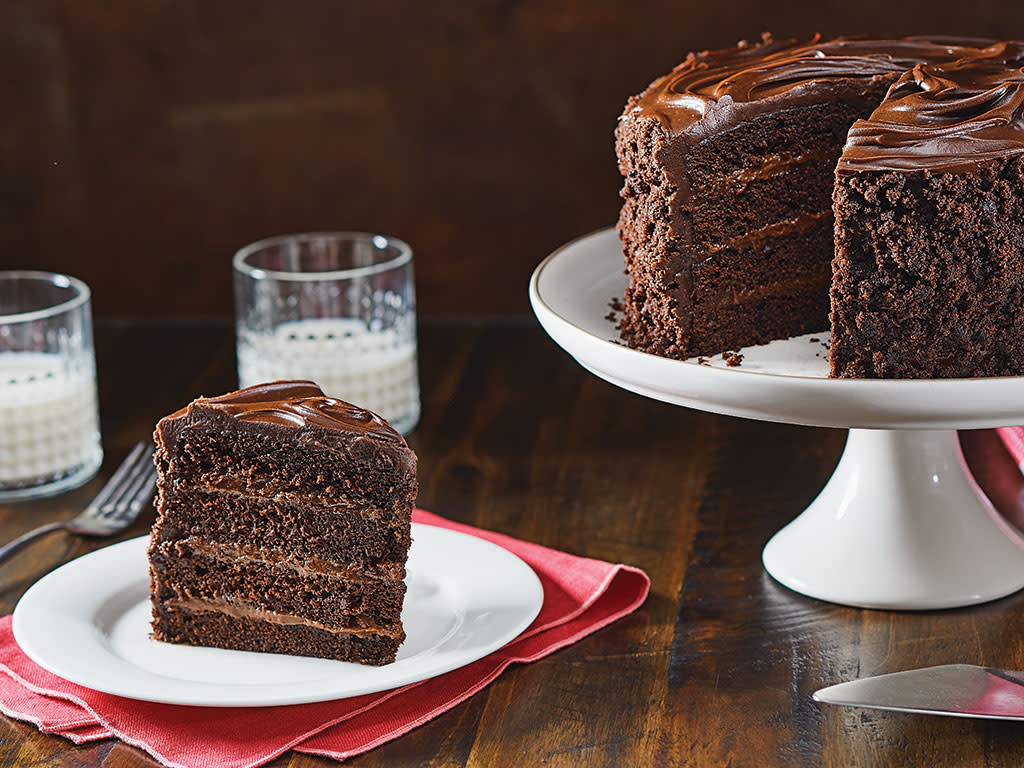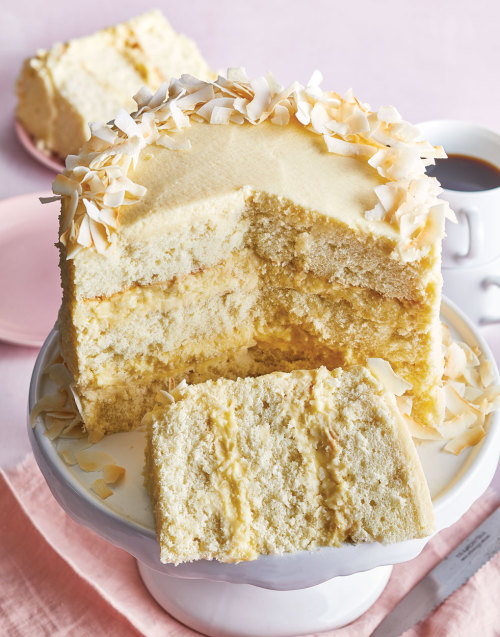How To Tell When Your Cake Is Done
How do you avoid one of the most common cake baking problems and pitfalls? Learn how to tell when cake is done with these easy tips.
By Robin Stephens

It’s no secret to anyone who knows me that I love cake. I love making cake and I especially love eating cake – fancy wedding cakes, old-fashioned comfort cakes, and everything in between. A properly baked cake is divine. It’s tender, moist, and has a perfect crumb. However, an overbaked cake can be tough and dry, while an underbaked cake, all gummy and dense may be even worse! How can you avoid these baking pitfalls? Let’s look at some easy steps for success.
Set Yourself Up for Success
The first step, even before mixing any ingredients, is to make sure your oven temperature is correct. The best way to do this is with an oven thermometer set on the middle rack. Also remember that ovens can vary, and the recipe time is a best estimate based on the developer’s oven, so set your timer a few minutes earlier to check on your cakes, or even 10-15 minutes earlier for loaf cakes or baked goods that may take an hour or more to bake.
When Is the Cake Done?
There are a few simple things to look for when deciding if your cake is fully baked. You won’t need to use every tip for every cake, but depending on the kind of cake you’re making, some of these will be more useful than others, so it’s helpful to learn them all.
1. Visual Inspection
Look for the sides pull away from the pan. As the baking time nears the end, you will see a thin gap between the edges of the cake and side of the pan because the edges of the cake are the first part to set. They shrink inward as the crumb tightens up.
The edges of the cake should be golden brown. The exception is a loaf cake, because they can bake for at least an hour, the edges can get considerably darker, so don’t panic. Also, you can’t use color to judge chocolate cakes for doneness, but the edges will be matte rather than shiny, and should look dry and set. To be sure, try another method such as cake tester or thermometer.
2. Touch Test
The touch test is an easy way to check for doneness. Using your fingertip, gently press on the top of the cake – the top should feel bouncy but firm. If you press the cake but your fingers leave an imprint, the cake isn’t done. To be sure, try another method such as cake tester or thermometer.
3. Use a cake tester
Ok, if your cake has passed the first two tests, it’s time to pull out the cake tester. You can use a toothpick or skewer to insert into the center of the cake to test for doneness. And the best part of using a toothpick is that they don’t have much surface area. A metal cake tester or paring knife is also useful.
Here’s how to analyze what you see:
- If the cake batter is clinging to the tester, the cake is still raw in the middle.
- If there’s just a few crumbs on the tester, your cake is on the verge of being baked through and it’s probably safe to remove from the oven with carry over baking, provided it’s also passed the above tests.
- If the tester is clean, the cake is probably baked through. If you have ingredients such as chocolate chips or dried fruit in the cake, and you poke through one of those, you can’t be sure, so try a different spot.
4. Use a thermometer
While a cake tester works very well, an instant-read thermometer will give you a fast picture of what’s going on inside your cake. The internal temperature of cakes like vanilla or banana should be about 210°F in the middle.
5. The cake sings to you
This is a relatively new technique for me. I first heard of this while watching the Great British Bake Off. While it may sound a bit odd, it turns out if you listen to your cake, it will tell you when it’s done. Put your ear to it and you can hear it sizzle and crackle as it is baking. This is the steam from the liquid ingredients cooking out. The sound becomes softer and slower as more steam is released, and the cake is closer to being done. There will be just the faintest sound when it’s done. If your cake is silent, it’s probably overbaked so it’s best to take it out when you hear the faint, slow sizzle.
Enjoy your cake — however it turns out!
With these five easy steps, a little practice, and a good recipe, you’ll know exactly when your cake reaches baking perfection. But remember, even if things don’t go exactly to plan, don’t toss that cake or get discouraged.
Here's how to salvage an imperfect cake:
- If it’s a bit crumbly, it will be a delicious topping on ice cream.
- If your cake wants to fall apart or maybe the frosting didn’t turn out as expected, turn it into a trifle.
- And don’t forget, brushing on a simple syrup has salvaged many a dry cake.
So happy baking, and let’s all eat cake!
A few of our favorite cake recipes...
Product Recommendations
Interested in cooking? Need some supplies?
Check out some of the tools we like. All products featured on Cuisine at Home are independently selected by our editors; we may earn an affiliate commission from qualifying purchases through our links.
